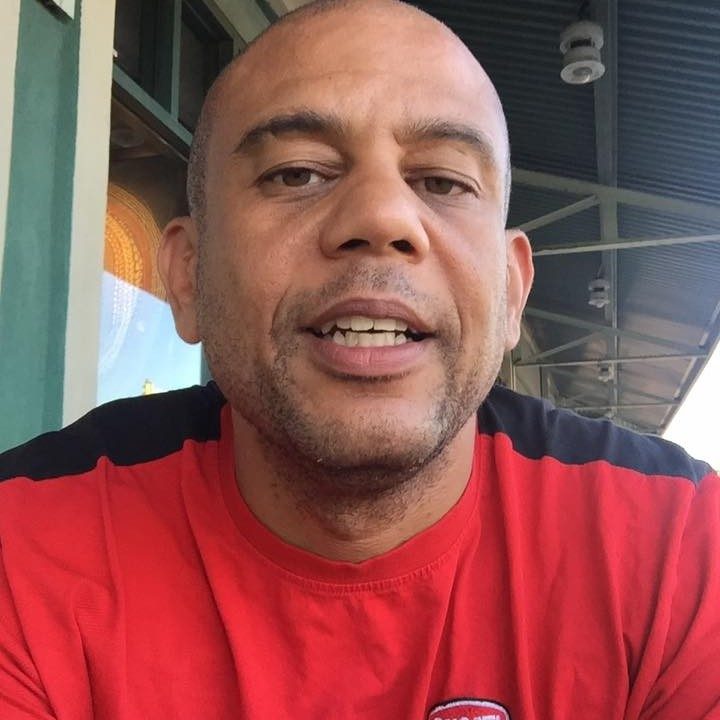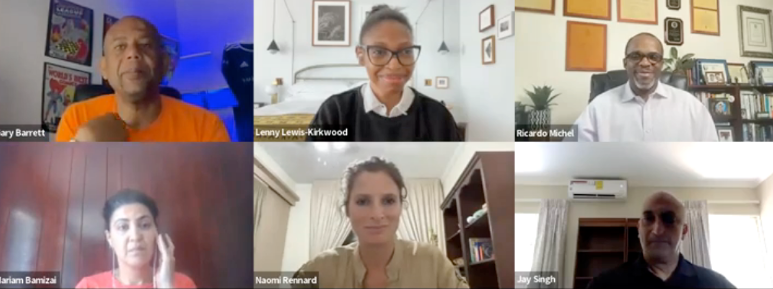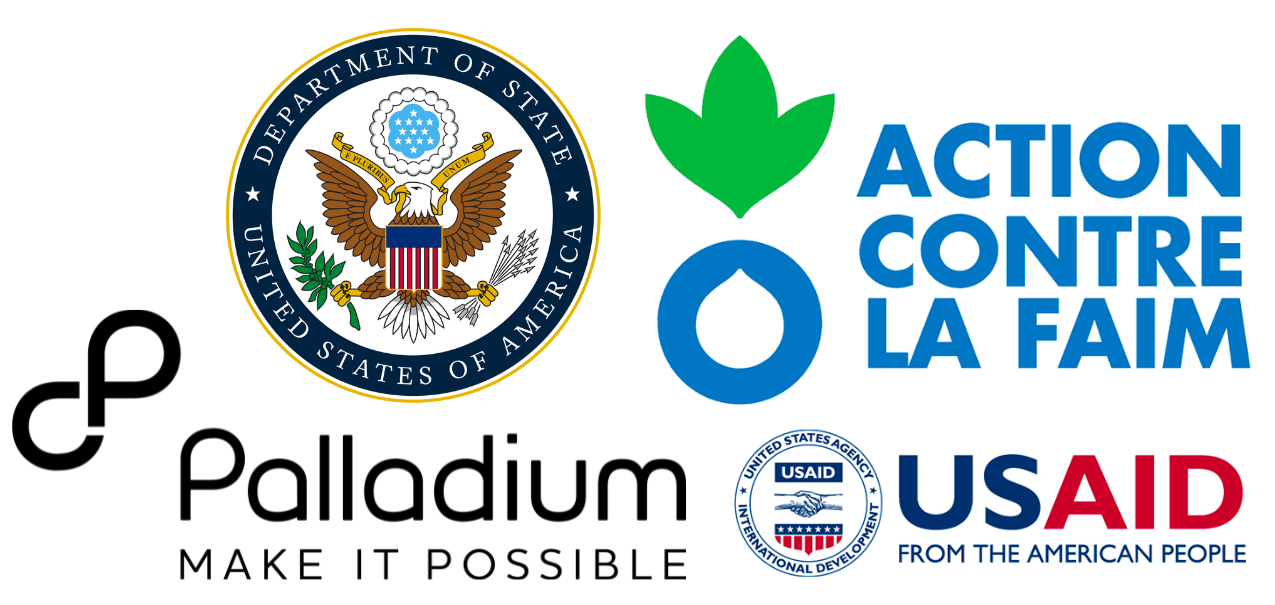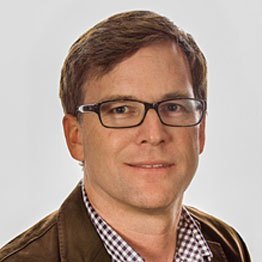Intercultural engagement for environmental and sustainability professionals
September 12, 2023

By David Robertson
Each year in August and September, students and faculty in Virginia Tech’s Executive Master of Natural Resources (XMNR) graduate degree program begin to shift their attention from local and national issues within the United States to concerns of more international and global scope. In this later half of the year-long program, our goal is for XMNR students to expand their horizons by developing a more global perspective, refining their intercultural competency skills, and engaging with their professional peers who are leading systems change for environmental and sustainability opportunities around the world.
XMNR faculty member Gary Barrett kicks off the process by sharing some of his own experiences and networks with our students. Gary currently serves as the Director of the U.S. Forest Service National Partnership Office and has extensive international experience, formerly holding senior management and leadership roles with U.S. Agency for International Development and U.N. World Food Program, including posts in Afghanistan and South Sudan.

“When faced with some of the toughest natural resource, development, and humanitarian challenges globally, it is easy to sometimes forget that ultimately there are people being affected,” said Barrett. “We look at these problems as purely political, ideological, or technical, without truly understanding the human costs in lives, livelihoods, and resources. Having a firm grasp of how to interact with communities (i.e., people) can help us to better understand the issues on the ground and ultimately craft more durable solutions to the most daunting development issues.”
A panel discussion on the cultural dimensions of international development
To bring these concepts to life, Gary leads a number of assignments and activities in the classroom, including organizing and moderating a series of guest faculty panels with distinguished speakers representing diverse cultural perspectives.
Most recently, Gary hosted a panel of diplomacy, development, and natural resource leaders to discuss the challenges and opportunities posed by working with communities globally, and their strategies for providing assistance while also working to “Do No Harm.”
The panel included individuals and organizations based in France, Jamaica, Jordan, and the United States:
- Mariam Bamizai – Senior Food Advisor, USAID Bureau for Humanitarian Assistance
- Lenecia “Lenny” Lewis – Foreign Service Office, U.S. Department of State
- Ricardo Michel - Co-Chief Executive Officer, The Palladium Group
- Naomi Rennard – Country Director, Action Contre La Faim
- Jaidev “Jay” Singh – Mission Director, U.S. Agency for International Development (USAID)


Intercultural competence and Global Study
This panel discussion and other class activities led by Gary are designed in part to help XMNR students prepare for the international work they complete as part of their Global Study experience and capstone projects later in the year.
In recent years, XMNR students have engaged with environmental and sustainability professionals, including employees and stakeholders at organizations such as Isla Urbana in Mexico City and Mezcal Amaras in Oaxaca, Mexico. In prior years, XMNR students completed similar work in China, Egypt, India, Morocco, South Africa, and Turkey.
Prior to participating in the Global Study trip, students complete the Intercultural Development Inventory and work one-on-one with faculty to design and implement personalized plans for their own intercultural competence. During the trip, they are able to apply lessons learned and practice their intercultural skills, including humility and responsiveness.
Gary elaborates on the value of these learning activities: “In the West, many tend to have set assumptions about what communities need (or want) when tackling natural resource problems, conflict, or effects of climate change. This is true whether examining food security, deforestation, population migration and refugees, or climate change resilience. While some assumptions may be valid, understanding the cultural and community context is best before going into action.”
According to research published by XMNR faculty in the International Journal of Teaching and Learning in Higher Education, our students report “gaining new perspectives on life and career as well as skills that make them more effective at their jobs and better equipped to engage in global projects.” But, these intercultural lessons are equally applicable in the United States.
Embracing diversity and inclusion at home and abroad
In the U.S., diverse cultural perspectives are underrepresented and often not included in the environmental and sustainability field. This recent news article explains, “Sociologists offer a number of explanations for the lack of diversity in conservation ranks. For instance, people of color tend to live in urban settings with less exposure to the outdoors and may consider outdoor recreation a white man’s domain, said Kristy Drutman, the Filipino and Jewish founder of the Green Jobs Board, an online listing of environmental jobs with companies promoting diversity.”
Describing the College of Natural Resources and Environment’s CNRE diversity and inclusion efforts, Paul Winistorfer, dean of the college, says: “For a program that values ecological diversity and understands the strength, resilience, and beauty of diversity in the natural world, we have an opportunity to take the lead in embracing diversity and inclusion.” He elaborates, “We know from our work in natural resources that diversity is a strength that brings resilience to natural systems. And it is beautiful.”
Maryam Kamran, CNRE’s director of inclusion and diversity, emphasized that one of the goals of the VT Strategic Plan is to “Achieve 20% representation of underrepresented minority graduate and minority professional students by 2024.” The university’s new Access and Affordability initiative is designed with this specific goal in mind.
Recruiting more XMNR students from diverse cultural backgrounds requires us to address issues of access and affordability. Today, the XMNR program costs less and takes less time to complete than it did when the program was first started in 2011, and more than 95% of our students graduate on time.
And, we know that diverse students are attracted by diverse faculty. According to Virginia Tech’s Future Faculty Diversity Program, part of a broader InclusiveVT initiative, “A genuine investment in diversity in today’s academic landscape requires a sustained focus on recruiting underrepresented faculty scholars.” Thank you to Gary for helping bring diverse scholars, including from underserved and historically marginalized communities, into the XMNR classroom.

David Robertson is the Director of the XMNR Program and Associate Director at CLiGS. David received a Ph.D. and a Master of Landscape Architecture degree from Virginia Tech and a B.A. in Art & Architecture from Montana State University. As the XMNR program director, David provides academic and career advising to students, works closely with faculty on curriculum development related to Systems Leadership, and engages with external partners to design projects and internship opportunities for students. His research and professional work is published in journals such as Society & Natural Resources, Conservation Biology, Ecology & Society, Environmental Management, and Environmental Science & Policy.


